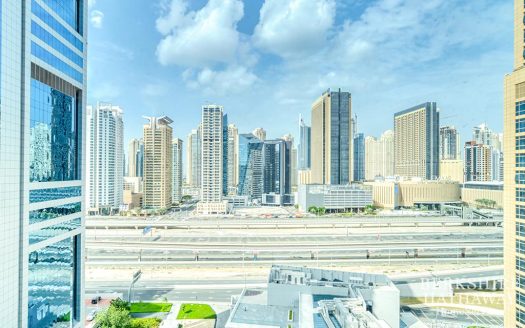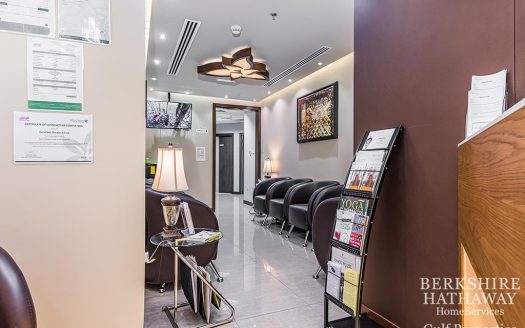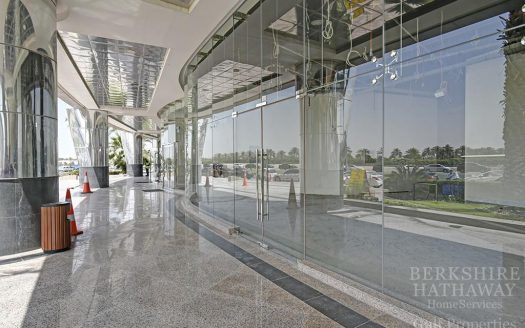Our Unique Selling Points
- The Team has over 15 years’ experience in the commercial sector
- You are associated with an ethical trustworthy brand
- Advice on the right place to invest to fit within your budget
- We will walk you through the process every step of the way, and more
- Guidance on achieving a viable ROI (usually between 6%-10%)
- Own by Warren Buffett -Known as the “Oracle of Omaha,” and is one of the most successful investors of all time
- We don’t like what we do, we ‘LOVE’ what we do
What Is a “Commercial Property?”
Commercial properties may refer to:
- Retail Shops
- Office Buildings
- Warehouses
- Industrial Buildings
- Apartment Buildings
- “mixed use” buildings, where the property may have a mix, such as retail, office and apartments.
There is variation to managing each of these types of properties. To paint a vague picture of what it is like investing in commercial property.
Commercial properties are good investment opportunities to earn regular income as they offer high rental rates compared to residential properties. … However, rental income and price appreciation depends on many factors such as current market trends, location, social and physical infrastructure. Commercial real estate (CRE) are properties that are used exclusively for business-related purposes or to provide a workspace rather than as a living space, which would instead consist of residential real estate. Most often, commercial real estate is leased to tenants to conduct income-generating activities. An advantage of commercial real estate is that it can offset the long-term impact of inflation. A major factor is the fact that property rents can be adjusted with inflation, which is often the result of strong economic. Being a commercial broker is not for the faint hearted, there are a lot of intricate areas to deal with that are not known to a residential broker, transaction can be a long-drawn-out process…months even, simply put you are normally dealing with cooperate clients that have partners and/or decision makers not all necessary within one location. Word to the wise……. it is incredibly astute that you explore your brokers knowledge prior to buy or rent a commercial space.

Commercial Update
Frequently Asked Question (Office)
- Where Can I rent an office space? In Dubai office spaces can be rented in designated commercial buildings across Dubai in SZR, Downtown, Business Bay, JLT, Dubai Marina, DWTC,DWC,JAFZA,DIFC,Bur Dubai,Garhoud ,Deira,DHCC,TECOM,Barsha,Media City ,DAFZA etc. depending on the location preference and license.
- Do I need a Trade License to operate in Dubai? Every commercial activity in Dubai needs professional trade license to operate and register with Ejari.
- What license do I require? The Commercial trade license in Dubai is broadly divided into two categories. Mainland license or On-Shore license (Limited Liability Companies) and Free zone license or Off-Shore License.
- Where can I get the licenses? Dubai Economic Department (DED) issues mainland license. For free zone, the license is issued by the free zone authorities for their free zones respectively. . There are more than 30 free trade zones in Dubai, JAFZA ,DMCC,DAFZA,DIFC,DHCC, Dubai Media City to name a few.
- Do I need a trade license before I look for an office space? Can be done simultaneously.
- What are the Prices for the offices for rent and sale? The price depends on the location, quality of the building and its demand, office layout and views from the office. Grade A Towers with Prime office spaces in Downtown, DWTC, SZR and Business Bay cost more. In Free zones JLT (DMCC) costs less than the Media City, DIFC .
- What are the costs involved? The office rental costs include Basic Rent, Service Charges (For Grade A Towers and Prime Office Spaces) and Security deposit (Generally 5 to 10% and refundable at the completion of tenancy) and Value Added Tax (VAT) -5% Is VAT Mandatory? For commercial offices VAT is mandatory.
- Should I rent or Buy? Depends on the long-term objective of the company and its outlook on expansion in Dubai and in the region.
Frequently Asked Question (Retail)
There are many question similarities a client will ask or need to know; however, what may vary in these questions will depend on whether a client is interested in an individual private landlord’s vacant space for rent or sale or a mall manager.
- What license will I need to start my business? Mall Manager – dependent upon your desired location, a DMCC license or a DED is required. Individual Landlord – same as above
- What other cost (outside of the rent) will I have to pay? Mall Manager – the main fees are security deposit, service fees, maintenance fee & marketing fee (some or all the above) Individual Landlord – security deposit
- What is required from me prior to meeting the manager/landlord? Mall Manager – a business profile of your concept is needed. Individual Landlord – verbal information regarding your concept
- How long is the process until I get my retail space? Mall Manager – this can take up to 2-3 weeks from agreeing all the terms and conditions of the unit, which could involve – paperwork, management in-house process plus getting the unit ready (rent only) Individual Landlord – generally a week to get a rental unit ready. For sale 2 weeks
- How long can I rent a unit for? Mall Manager – usually for 1 year renewable Individual Landlord – can be up to 3-5 years depending specific factors (client fit-out investment)
- How many cheques can I offer for rent? Mall Manager – they usually are flexible with 4 chqs Individual Landlord – usually between 2-4 chq’s
- Why are they selling the retail space? Mall Manager – no applicable Individual Landlord – there are many factors which could include, seller need the finance, sellers moving, or they are concept style does not fit well in this location.Word to the wise: In my experience we have found that this is a question you will want to ask a few times from a few different people, as the answer seems to change.
- Can I get pro- forma prior to the sale? Mall Manager – no applicable IL – Every investor involved in the purchase of property should ask to see this document, especially if it is a tenanted unit for sale. A pro forma is a document that contains expenses, such as common area maintenance and utilities, and income information for the unit. This document is so critical because it contains the property’s NOI (net operating income), which is needed to calculate income projections or ROI (return on investment).
- Is this location safe? Naturally, a broker will give a client their professional overview of the location; however, it is down to a client to do their own due diligence on the location too.
- Will my rent increase after the first year? Mall Manager – a rental increase will be discussed prior to signing an agreement and will be clearly show the % of increase or a fixed rate for 2 year.
- Why would a concept not be suitable for a specific retail space? Mall Manager – If there are similar concept near your desired space this may be a challenged; however, you will be offered an alternative Individual Landlord – always acceptable if you like the space













